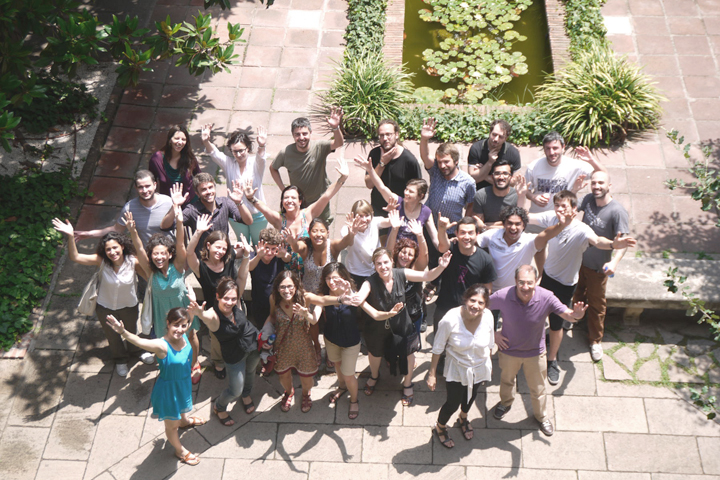
MEL SLATER
Position: ICREA Research Professor
Research team
Domna Banakou
Early stage researcher
dbanakou (at) ub.edu
Sameer Kishore
Administrative and technical staff
s.kishore (at) ub.edu
Contact details
Dr. Mel Slater
Department of Psicologia Clínica i Psicobiologia.
Faculty of Psychology, Passeig de la Vall d’Hebron 171
08035 Barcelona (Spain)
+34 93 403 11 14
melslater (at) ub.edu
Research Interests
The Event Lab uses immersive virtual reality to study issues in psychology and neuroscience. A specific interest is how the brain represents the body. In virtual reality it is possible to substitute a person’s body by a life-sized virtual one that moves correspondingly with the movements of the person. This gives rise to an illusion of ownership over the body. The group works on multisensory factors that enhance this illusion of body ownership. A particular interest is the consequences of body ownership for attitudes, beliefs and behaviours. Particular areas we have considered are racial bias, and the implications of age. The group also has a focus on presence in virtual reality, the illusions of being in the virtual space and that virtual events are real. We have applications in social psychology and psychological therapy. The group also works on methods and algorithms that enhance virtual reality methods and systems.
Current Research Lines
- Body representation
- Agency
- Small group behaviour including responses to aggression
- Presence in virtual environments
- Algorithms and methods
Methods / technologies
- Virtual reality
- Computer graphics
- EEG and physiological recordings
Highlighted publications
· Banakou, D., Groten, R., & Slater, M. (2013). Illusory ownership of a virtual child body causes overestimation of object sizes and implicit attitude changes. PNAS, 110, 12846-12851.
· Banakou, D., & Slater, M. (2014). Body Ownership Causes Illusory Self-Attribution of Speaking and Influences Subsequent Real Speaking. PNAS, 111(49), 17678-17683.
· Blanke, O., Slater, M., & Serino, A. (2015). Behavioral, Neural, and Computational Principles of Bodily Self-Consciousness. Neuron, 88(1), 145-166.
· Freeman, D., Evans, N., Lister, R., Antley, A., Dunn, G., & Slater, M. (2013). Height, social comparison, and paranoia: An immersive virtual reality experimental study. Psychiatry Research, 213(3), 348-352.
· Maister, L., Slater, M., Sanchez-Vives, M. V., & Tsakiris, M. (2015). Changing bodies changes minds: owning another body affects social cognition. Trends in Cognitive Sciences, 19(1), 6-12.


